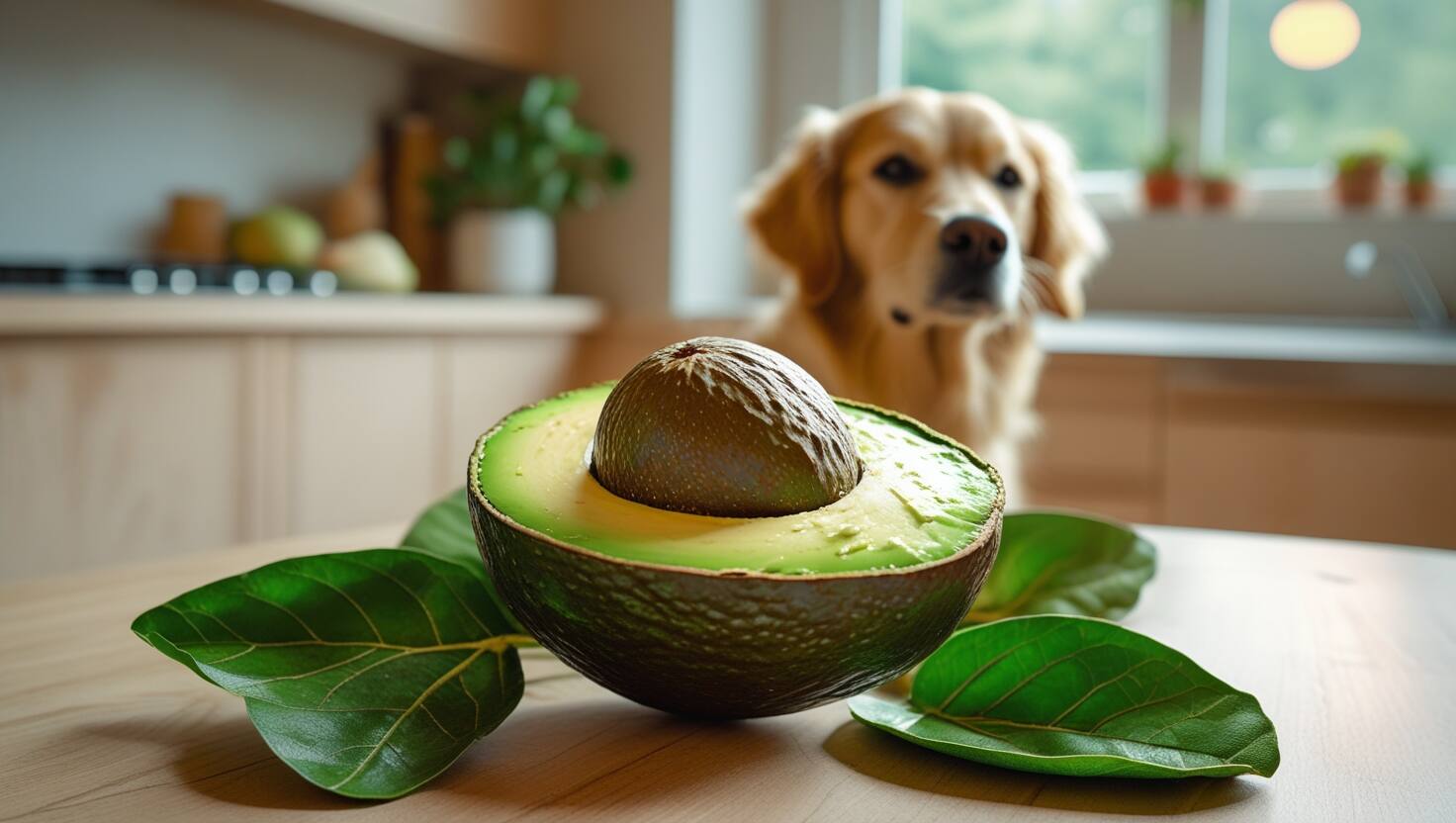Can Dogs Have Avocado Oil?
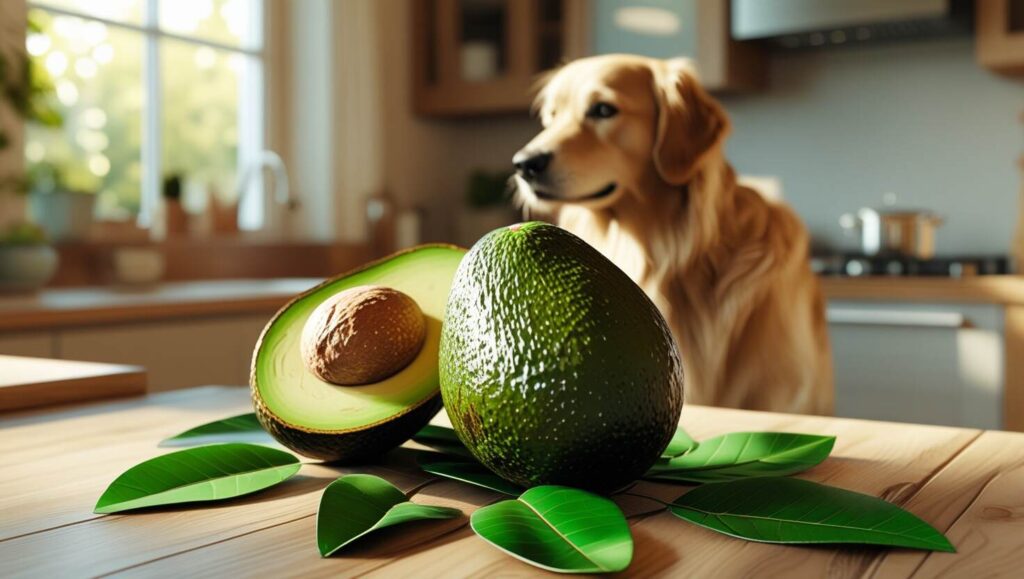
Avocados can be risky for dogs due to persin, found in the seed, skin, and leaves, which can cause toxicity or digestive issues. Avocado oil, in small amounts, is generally safe and offers benefits like shiny coats but should be used sparingly. Stick to dog-safe fruits and veggies like carrots, apples, or pumpkin for healthier alternatives.
Understanding Avocado and Dogs
Avocados have been a symbol of trendiness since the 2010s, famously featured on toast and as a staple in human diets for thousands of years. With its large, wrinkly pear appearance, and leathery skin, the buttery green fruit is known for its calorie-dense nature—around fifty calories per ounce—and is packed with high-fat, monounsaturated fats, potassium, folate, and essential vitamins like B6, C, and E. But when it comes to dogs, the flesh, leaves, skin, and pit of this versatile fruit hold risks and benefits that dog parents must carefully weigh.
The seed, known for its stone-like center, contains persin, a fungicidal toxin naturally occurring in the plant. In dogs, this can cause vomiting, diarrhea, gastrointestinal upset, and, in severe cases, myocardial damage. Although avocado oil used in dog food can be an appropriate source of nutrient-rich macro and micro-nutrients, like fiber and minerals, substantial research is still lacking. Over-consuming fats could lead to weight gain, pancreatitis, or digestive issues, so it’s vital for dog parents to consult a vet before offering this safe-to-eat product in a daily routine.
Risks and Toxic Parts of Avocado
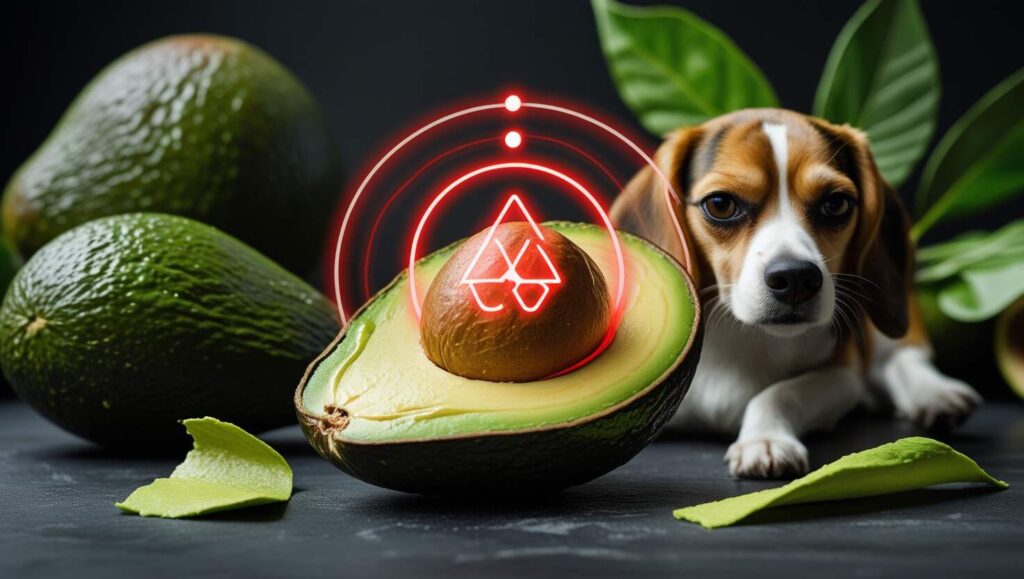
While avocados offer essential nutrients like vitamins, fatty acids, and antioxidants, they come with specific risks for dogs. The main concern is persin, a natural antifungal compound produced by the plant. Found in the leaves, seeds, bark, and peels, persin can cause a toxic reaction in dogs, leading to vomiting, diarrhea, or, in rare cases, myocardial damage. According to veterinarians and the Animal Poison Control center, even small amounts of these parts can result in negative reactions or toxicity, so it’s crucial to limit exposure.
Ingesting large pieces, like the seed or pulp, can also cause intestinal blockage, requiring treatment to surgically remove the indigestible object, much like a rock or rubber ball. Frequent pancreatitis, caused by the high-fat content, is another danger for dogs, making feeding avocados risky. Always follow your vet’s recommendations to avoid poisoning and keep trash or spoiled fruit out of reach of curious household members.
Avocado Oil for Dogs
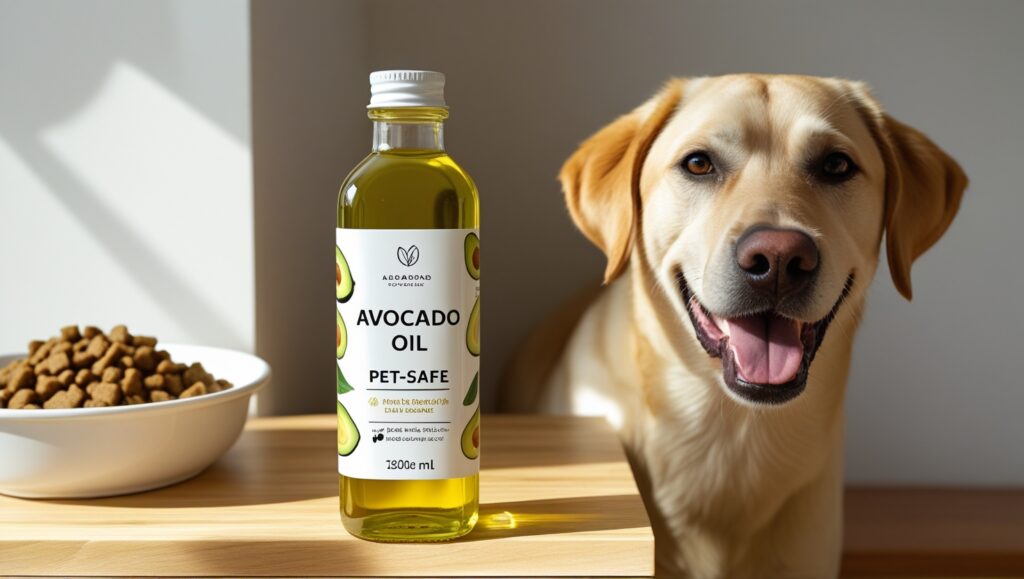
Avocado oil, derived from the flesh of the fruit, is a non-toxic option for dogs when used infrequently and in small amounts. Packed with omega-3 fatty acids, vitamin E, and anti-inflammatory compounds, it can support a shiny coat, healthy joints, and improved brain function. However, its calorie-dense nature means it should be used in moderation, as excess fat could lead to digestive upset or even pancreatitis in dogs with sensitive stomachs.
Increasingly popular in skincare and dietary supplements, avocado oil is sometimes included in dog shampoos, conditioners, or balms to treat dry skin. If introduced to your dog’s diet, start with a few drops or up to a teaspoon, and observe for any allergic reactions or adverse effects like diarrhea. For a safer upgrade, alternatives like salmon oil or cod liver oil may provide similar benefits with fewer risks, making it a great option for regular use.
Guacamole and Allergies
Guacamole may be tasty for humans, but it’s dangerous for dogs. Common ingredients like onion, garlic, and salt are highly toxic and can cause serious digestive distress or worse. Even if the avocado itself is not harmful in small amounts, the salsa or foods mixed with it make it strictly off-limits for your furry friend.
Dogs can also develop allergies with repeated exposures, though this is rare. An adverse reaction could include digestive issues or other unhealthy effects. To boost mealtime excitement, consider safer options like pumpkin in moderation instead of risky plants like those from the onion family—shallots, chives, or leeks. Keep their food bowl free of anything unsafe!
Safe Alternatives and Healthy Options
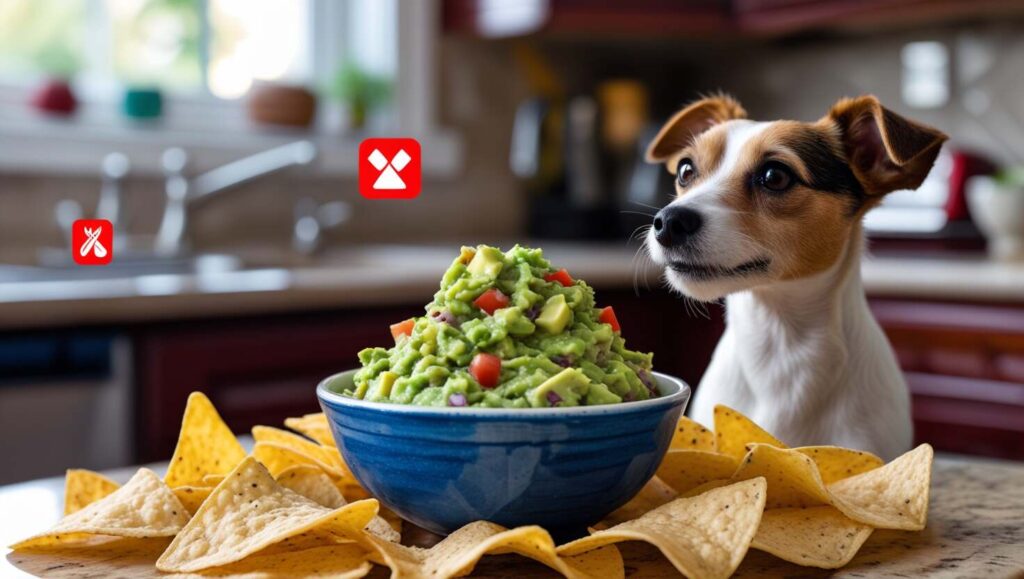
Instead of avocados, you can replace them with safe and healthy foods that support your dog’s health and wellness. Fresh fruits and vegetables like carrots, cucumbers, and green beans make great snacks. For a nutrient boost, try pumpkin to aid digestion, or apples, bananas, and blueberries as tasty treats. Frozen watermelon chunks are perfect for a summer refreshment, while peanut butter (without xylitol or other artificial sweeteners) is an all-time favorite.
For added vitamin E and antioxidant benefits, raw spinach, red bell peppers, or broccoli can help counteract free radicals, those harmful molecules that cause off-balance damage in the body. Foods like salmon or eggs, when fed in moderation, support a healthy immune system and may improve vision and neurological responses.
Avoid high-sodium canned options and be cautious with pre-existing conditions like diabetes. Tailor these treats to your pup’s needs to ensure both teeth and tummy stay happy!
Actions and Vet Care
If your dog is staring while you cook dinner, it might be tempting to toss them a piece of food. However, their safety should always come first. While the flesh of an avocado in a small amount is OK, it’s important to ensure it doesn’t become a regular part of their diet. Always follow veterinarian-approved guidelines for your dog’s caloric and nutritional needs. For an adult fifty-pound dog, their daily intake ranges between 700-900 calories, with treats making up no more than 70 calories.
If your dog accidentally eats the peel, pit, or excessive pulp, watch for signs like vomiting, diarrhea, or abdominal discomfort. Severe symptoms may require a visit to an emergency facility to address issues like bowel obstruction, pancreatitis, or an anaphylactic reaction. Proper disposal of peels and pits and locking trash prevents scavenging and reduces risks.
In emergencies, blood panels, x-rays, and medications may be needed to relieve symptoms. Always monitor your dog for digestive danger and report any unusual behavior to your vet immediately.
Final Thoughts
While dogs can safely eat avocado oil in small amounts, it’s unlikely to cause a reaction since the harmful toxin in avocados is not present in the oil. However, it’s recommended to be precautious and avoid feeding it regularly. Stick to dog-safe fruits and vegetables that align with their caloric guidelines.
Though humans adore avocados for their monounsaturated fats, vitamins, and minerals that support heart health, cholesterol levels, and immune function, what’s healthy for humans isn’t automatically good for dogs. Always prioritize their specific needs.
Kindly note: The content shared in this blog is gathered from online sources, some of which may not be verified. For accurate guidance on caring for your dog, it is recommended to seek advice from a qualified veterinarian.

